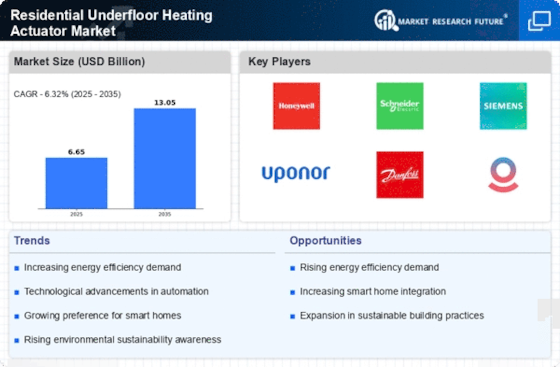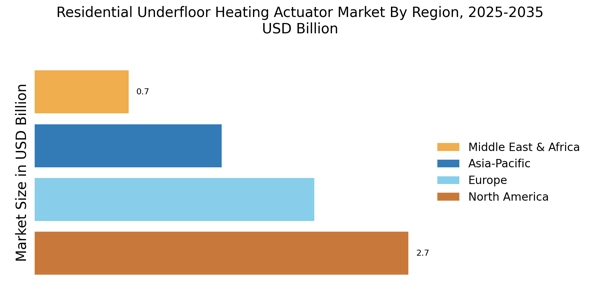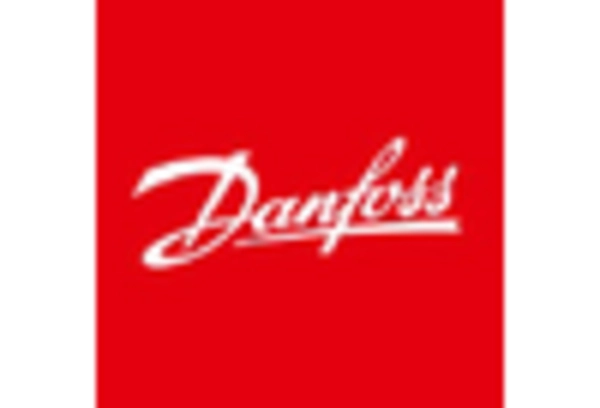Growing Awareness of Indoor Comfort
The rising awareness of indoor comfort and its impact on quality of life is driving the Residential Underfloor Heating Actuator Market. Homeowners are increasingly prioritizing comfort in their living spaces, leading to a surge in demand for underfloor heating solutions. Research indicates that underfloor heating systems provide a more uniform heat distribution compared to traditional heating methods, enhancing overall comfort levels. This growing preference for comfort is likely to result in a significant increase in actuator installations, as they play a crucial role in regulating temperature. Consequently, the market for underfloor heating actuators is poised for growth as consumers seek to create more comfortable living environments.
Rising Demand for Energy-Efficient Solutions
The increasing emphasis on energy efficiency in residential buildings appears to be a primary driver for the Residential Underfloor Heating Actuator Market. Homeowners are increasingly seeking solutions that not only provide comfort but also reduce energy consumption. According to recent data, energy-efficient heating systems can reduce energy costs by up to 30%. This trend is likely to propel the adoption of underfloor heating systems, which are known for their efficiency. As a result, the demand for actuators that control these systems is expected to rise, indicating a robust growth trajectory for the market. Furthermore, government incentives aimed at promoting energy-efficient technologies may further stimulate market expansion.
Technological Advancements in Heating Systems
Technological innovations in heating systems are significantly influencing the Residential Underfloor Heating Actuator Market. The introduction of advanced actuators that offer enhanced control and automation capabilities is likely to attract consumers. For instance, actuators that can be integrated with smart thermostats and mobile applications provide users with the ability to manage their heating systems remotely. This level of control not only enhances user experience but also optimizes energy usage. Market data suggests that the integration of such technologies could lead to a 20% increase in actuator sales over the next few years. As technology continues to evolve, the market for underfloor heating actuators is expected to expand accordingly.
Increased Renovation and Remodeling Activities
The surge in home renovation and remodeling activities is contributing to the growth of the Residential Underfloor Heating Actuator Market. As homeowners invest in upgrading their living spaces, there is a growing inclination towards modern heating solutions that offer both efficiency and comfort. Data suggests that the home renovation market has seen a steady increase, with many homeowners opting for underfloor heating systems during renovations. This trend is likely to drive the demand for actuators, as they are essential for the effective operation of these systems. Consequently, the market for underfloor heating actuators is expected to benefit from this ongoing renovation boom.
Regulatory Support for Sustainable Building Practices
Regulatory frameworks promoting sustainable building practices are emerging as a key driver for the Residential Underfloor Heating Actuator Market. Governments are increasingly implementing regulations that encourage the use of energy-efficient heating solutions in residential construction. These regulations often mandate the incorporation of systems that reduce carbon footprints, thereby boosting the demand for underfloor heating solutions. Market analysis indicates that regions with stringent energy efficiency standards are likely to see a 15% increase in actuator demand over the next five years. This regulatory support not only fosters market growth but also aligns with the global shift towards sustainability.

















